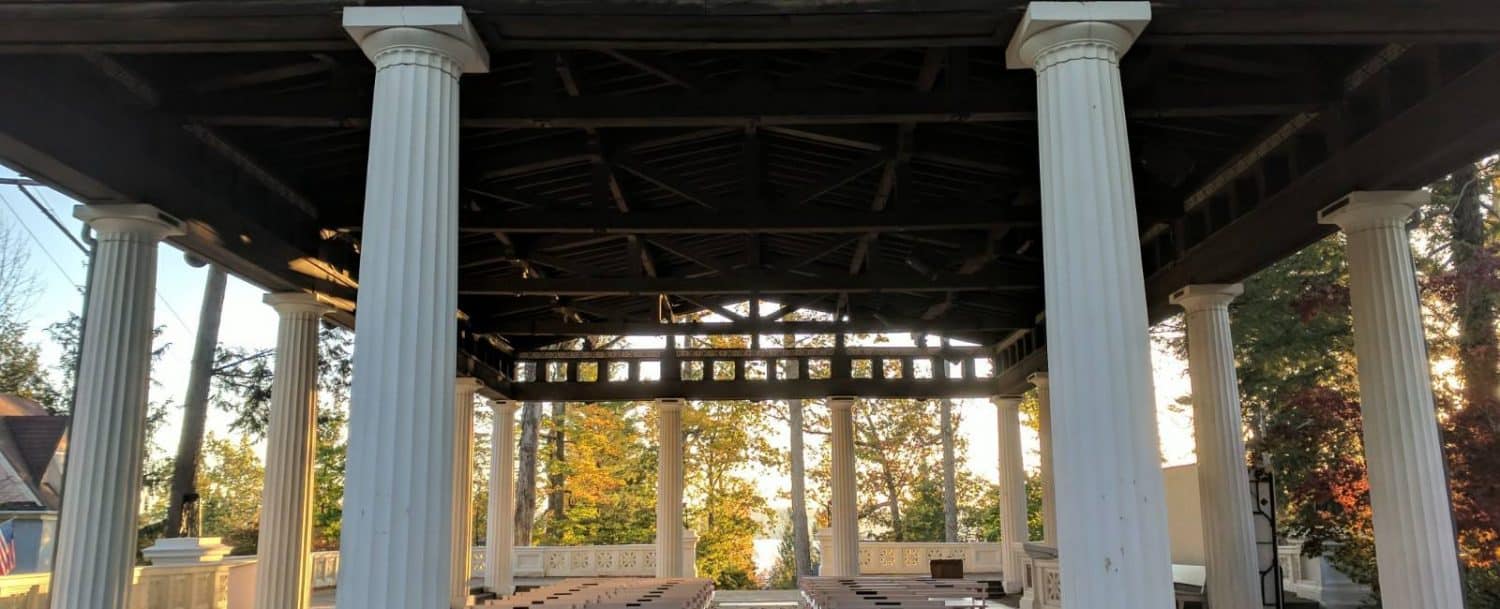Chautauqua Season Events 2025
Chautauqua Institution 2025 Season: June 21–August 24
Brace yourself for an incredible lineup of concerts, classes, performances and thought-provoking lectures — it will be an unforgettable summer! Stay tuned for regular updates, available at 2025.chq.org. The excitement is just beginning!
Week One: June 21–28
Themes of Transformation: Forces Shaping Our Tomorrow
Change is all around us, from our cells to our society. This week, we’re diving into the trends and challenges shaping our future. Are we driving these changes or just reacting to them?
As we identify the current forces transforming our lives, how do we then use that insight to confidently navigate the future?
Through insightful, interdisciplinary case studies, Chautauqua will bring together social scientists, economists, changemakers and futurists to examine the impact of transformation on us, our communities and our world.
Week Two: June 28–July 5
A Week Curated With Lewis Black
Join us for a week of laughs and insights with comedian Lewis Black, curated in collaboration with the National Comedy Center. This week dives into the art and impact of comedy.
Featuring a live performance from Lewis Black’s podcast “The Rant is Due,” this week brings together the sharpest comedic voices to explore these questions and more — if we can hear them over the laughter.
- Lewis Black, celebrated standup comedian and actor, “Inside Out 2”
Week Three: July 5–12
Art in Action: Building Community Through the Arts
Join us at Chautauqua for a week celebrating the intersection of art and community, featuring creative experimentation and excellence.
Why do we create? How is art woven into everyday life?
This week connects impactful artistic experiences with deeper insights from the artists themselves.
- George Saunders, author, Lincoln and the Bardo
Week Four: July 12–19
The Future of the American Experiment
A Week in Partnership With American Enterprise Institute and Brookings Institution
Chautauqua brings two of America’s most highly regarded think tanks together on its historic lecture platform for a series of discussions on the issues driving the national discourse.
- Robert Doar, president, American Enterprise Institute
- Cecilia Elena Rouse, president, Brookings Institution
Week Five: July 19–26
Innovation in Capitalism: How to Meet 21st-Century Challenges?
Twenty-five years into the 21st century — and considering the events that define recent history, such as Big Tech’s emergence as the dominant industry, global conflicts, financial collapses and a deadly pandemic — this week we put our finger on the pulse of the global economy, and the American capitalist system.
Week Six: July 26–Aug. 2
The Global Rise of Authoritarianism
This week provides a global perspective on the decline of democracy and the rise of authoritarianism. How and why are authoritarian regimes gaining power?
In its 2021 Freedom in the World assessment, the nonprofit Freedom House noted a sharp acceleration the previous year in a global decline of democracy. The decline was an effect of what it characterized as decades-long trend of rising authoritarianism.
We will explore the global trends, different systems and lessons learned from countries that have resisted or overthrown authoritarian regimes.
Week Seven: Aug. 2–9
Kwame Alexander and Friends
Honoring a shared mission to change the world through the power of storytelling, award-winning author, poet, producer and educator Kwame Alexander returns to the Amphitheater stage to lead a series of heart-to-heart conversations on making a positive difference in our world.
Across five mornings, the Amp stage transforms into Kwame’s “living room,” in a variety of formats where deep and insightful conversations will unfold.
- Kwame Alexander, author, Why Fathers Cry at Night: A Memoir in Love Poems, Letters, Recipes, and Remembrances; Michael I. Rudell Artistic Director of Literary Arts and inaugural writer-in-residence, Chautauqua Institution
Week Eight: Aug. 9–16
The Middle East: The Gulf States’ Emerging Influence
Building on a decades-long legacy of thoughtful and informative programming focused on the Middle East, Chautauqua focuses specifically on the increasingly influential states that border the Persian Gulf, including members of the Gulf Cooperation Council, Iran and Iraq.
We will seek to understand the histories, demography and economies of the Gulf states, how they are ruled or governed, and their relationships with each other and the broader Middle East.
Week Nine: Aug. 16–24
Past Informs Present: How to Harness History
We know the saying “those who forget their history are doomed to repeat it,” but what can be said about how history is told (or not told) that informs and influences the present moment for those living it? History is, of course, the past; but it is also the description of that past.
History is a story. What do those stories mean, and how can those stories be edited or reinterpreted to serve different purposes, even purposes at odds?
We consider history as science, as art, as philosophy — how do fields including politics, industry and faith impact how we interpret history?
